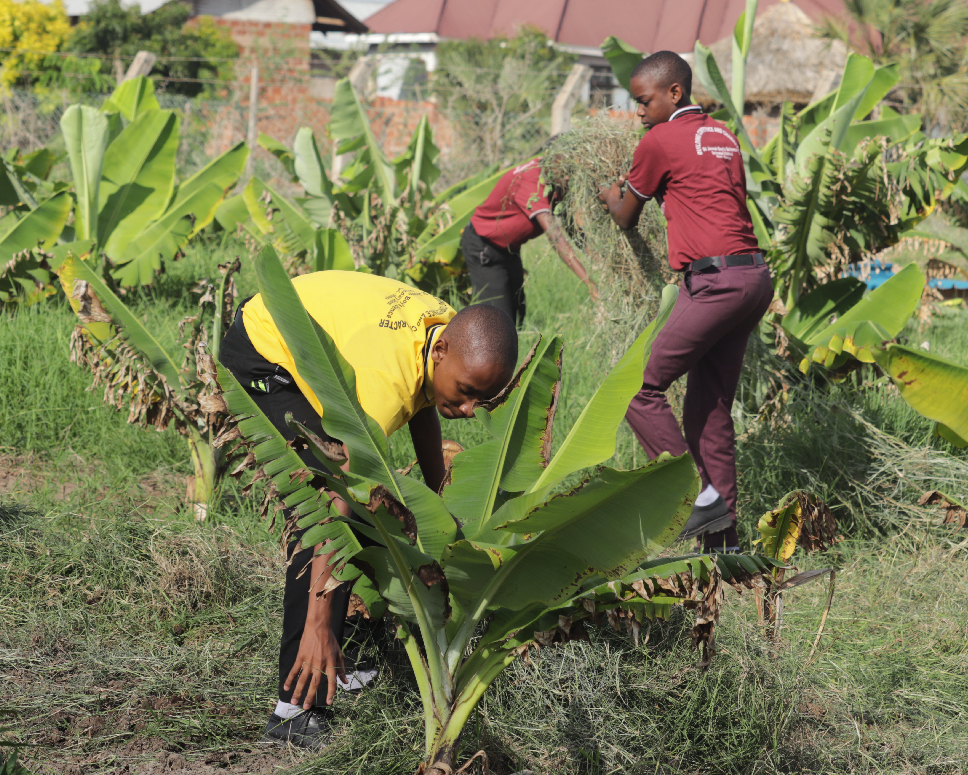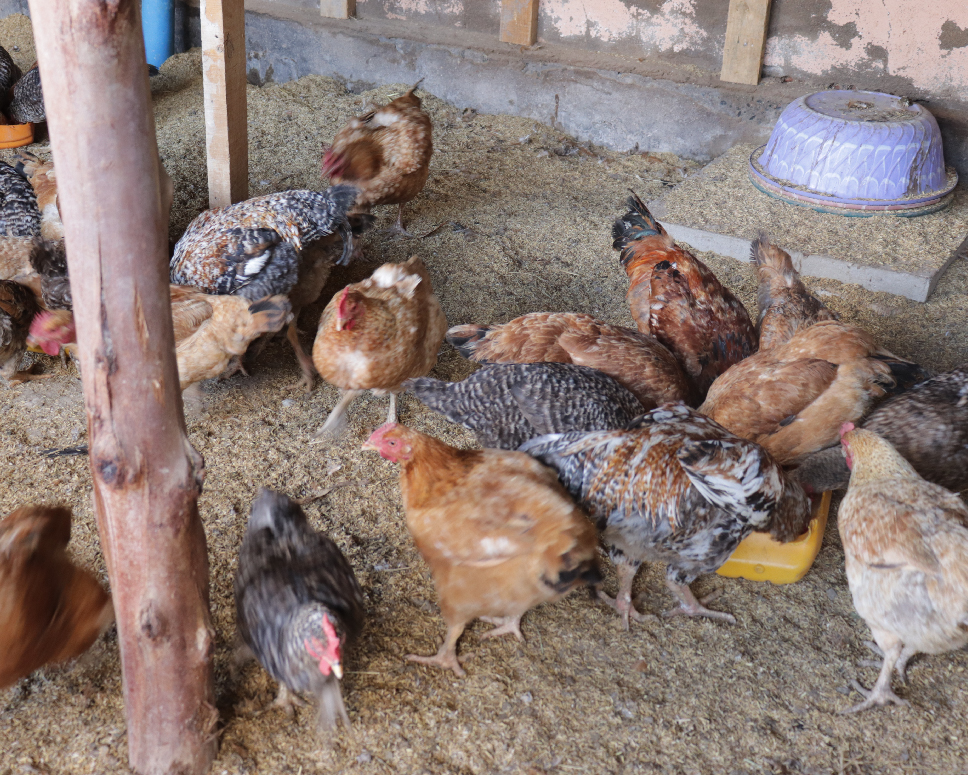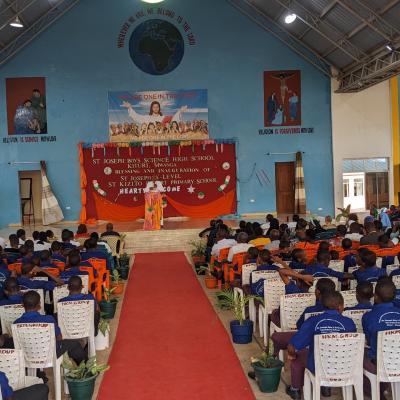Planting knowledge, harvesting success: Cultivating minds through farming
Agriculture in Our School
Agriculture plays a vital role in our school, fostering a deep connection with the land and promoting sustainable practices. Our agricultural program provides students with hands-on learning experiences, where they actively participate in planting, nurturing, and harvesting a variety of crops. Through these activities, students gain valuable knowledge about agricultural techniques, soil health, and the importance of environmental stewardship. In addition to cultivating crops, our school's agriculture program also includes livestock management, teaching students about animal care, nutrition, and responsible farming practices. By engaging in agriculture, our students develop a profound appreciation for the food they consume, the natural world around them, and the importance of sustainable agriculture for the future.

School Garden
A good percentage of our school vegetables come from the school garden, highlighting the invaluable impact of this initiative. School gardens go beyond merely teaching students how to grow food; they offer a multifaceted learning experience. Students actively participate in the entire process, from planting seeds to tending to the crops and ultimately harvesting the produce. By engaging in these activities, students gain practical knowledge about plant life cycles, soil composition, and the essential role of sunlight and water in sustaining healthy growth. Moreover, school gardens foster a sense of responsibility and teamwork among students as they collaborate to care for the plants. These hands-on experiences not only promote a deeper understanding of food production but also instill lifelong skills such as patience, problem-solving, and a strong work ethic. Furthermore, the school garden serves as a powerful educational tool for teaching students about nutrition, healthy eating habits, and the environmental benefits of locally sourced, organic produce. It not only enhances their connection with nature but also nurtures a sense of pride and accomplishment as they witness the fruits of their labor being used in school meals. Ultimately, the school garden serves as a living classroom, cultivating knowledge, values, and a sustainable approach to food production among our students.
"Agriculture is our wisest pursuit because it will, in the end, contribute most to real wealth, good morals, and happiness." - Thomas Jefferson

Chicken Farm
The school chicken farm provides us with a sustainable source of nutritious eggs that significantly contribute to our school's food program. It serves as an educational and practical resource, allowing students to actively engage in the entire process of raising chickens and collecting eggs. By taking care of the chickens, students learn about animal husbandry, including proper nutrition, hygiene, and the importance of providing a safe and comfortable environment for the animals. As the chickens mature and start laying eggs, students witness firsthand the direct benefits of their efforts, as fresh eggs become readily available for consumption. These eggs not only add nutritional value to our school meals, but they also promote a sense of self-sufficiency and sustainability. Students learn about the health benefits of eggs, including their high protein content, essential vitamins, and minerals. Moreover, the school chicken farm fosters a sense of responsibility and empathy towards animals, as students develop a deeper understanding of the value of humane and ethical farming practices. Overall, the school chicken farm is a valuable asset, providing both educational opportunities and a nutritious food source for our school community.
SJS Organic Farm
Our school proudly maintains a strong partnership with SJS Organic Farm, a renowned establishment specializing in organic farming practices. This collaboration not only enriches our students' education but also promotes sustainable agriculture and environmental stewardship. Through this association, students have the unique opportunity to visit the farm, where they witness firsthand the principles of organic farming, such as natural pest control, composting, and crop rotation. These visits serve as invaluable learning experiences, enabling students to understand the importance of chemical-free farming methods, biodiversity conservation, and the impact of organic produce on personal health and the environment. Moreover, the partnership with SJS Organic Farm allows our school to incorporate fresh, locally sourced organic produce into our meals, providing students with nutritious and wholesome options. By establishing a connection with the farm, our students develop a profound appreciation for the labor-intensive process of organic farming, the importance of sustainable food systems, and the benefits of consuming organic products.
Dairy Farming
Cows play an integral role in our school, enriching our educational experience and contributing to the overall well-being of our community. The presence of cows in our school provides students with unique opportunities to learn about animal husbandry, agriculture, and the importance of sustainable practices. Through hands-on experiences, students actively participate in the care and management of cows, gaining practical knowledge about their feeding, milking, and overall health. These experiences foster a deep connection with these gentle creatures, teaching students empathy, responsibility, and respect for all living beings. Additionally, the cows on our school campus provide us with a sustainable source of fresh milk, promoting healthy nutrition and self-sufficiency. Students are involved in the milking process, witnessing the transformation of raw milk into various dairy products that are utilized in our school's meals and shared with the community. Furthermore, the cows serve as a living classroom, where students can study topics such as genetics, reproduction, and the environmental impact of livestock farming. The presence of cows in our school not only adds an element of rural charm but also nurtures a sense of appreciation for the interconnectedness between animals, agriculture, and our daily lives.











